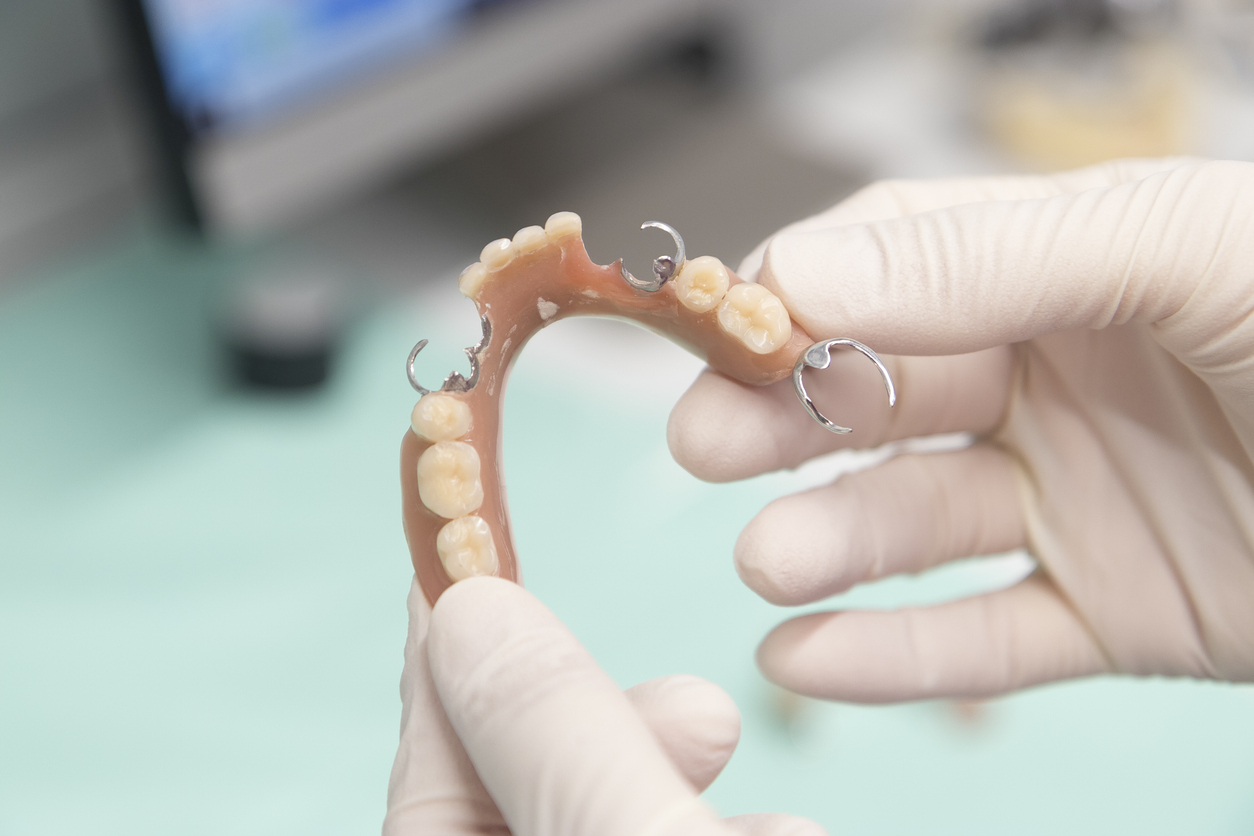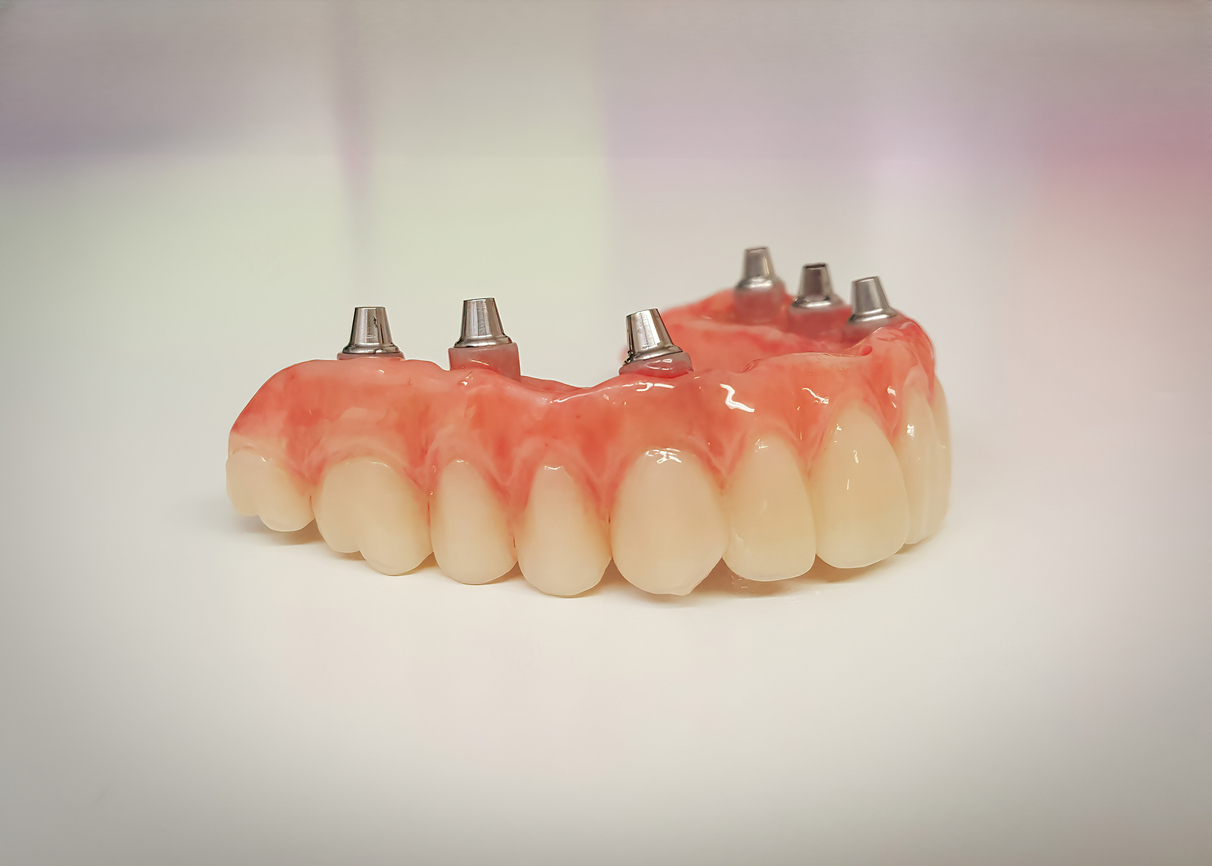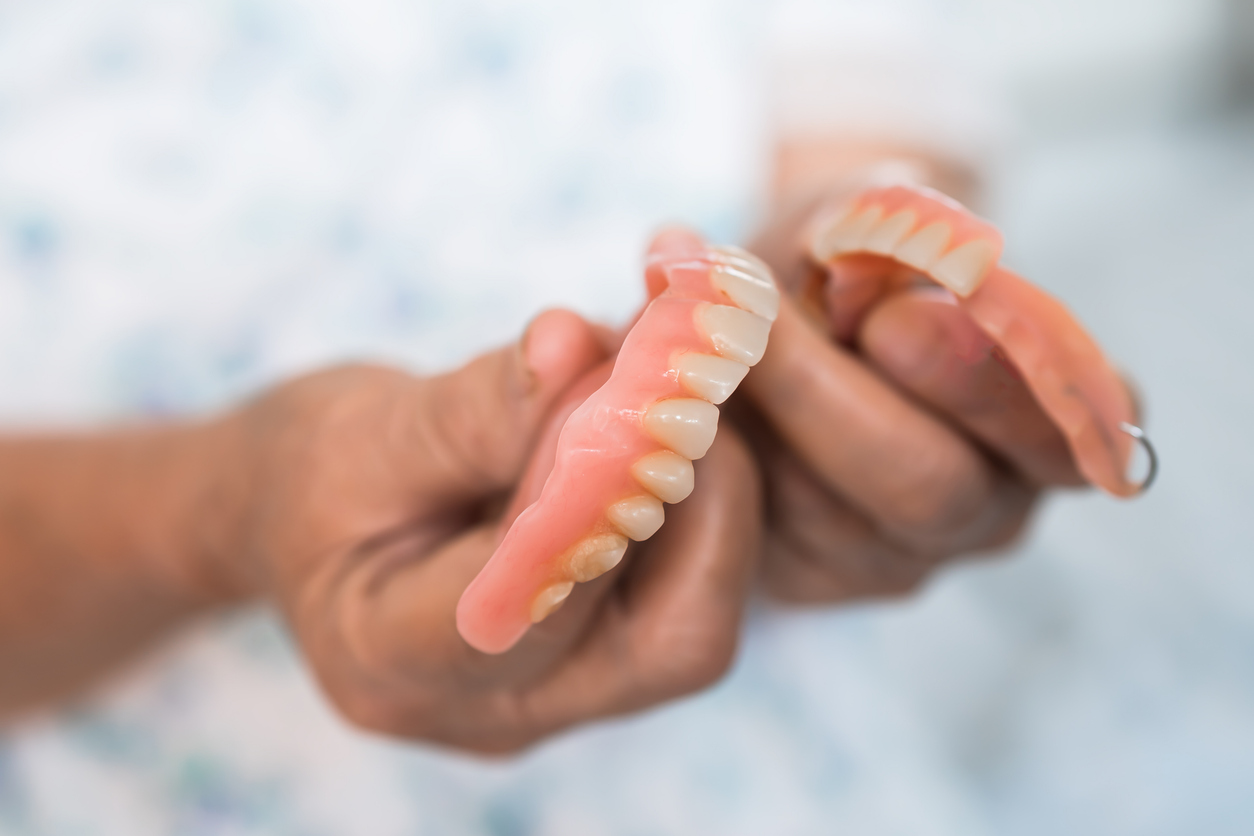What does the denture treatment process involve?
Making and fitting dentures can be quite an involved process so you will normally need to attend several appointments in our dental spa.
Following a comprehensive consultation, impressions of your mouth will be taken so a wax model can be produced and checked for fit, bite and comfort. This is adjusted until we are both happy with the look and feel of the model, and then sent to a dental laboratory to be made.
When your dentures are ready, we invite you for your fitting. If you are having complete dentures, these will be fitted in the top or bottom of your mouth. This complete denture will consist of a gum coloured arch with a set of prosthetic teeth attached. Partial dentures will be used if you only have one or a few missing teeth and may be held in place with metal hooks attached to existing teeth.
It can take a little while to get used to your new dentures, so we give you some tailored tips and advice to help. Occasionally, repeat appointments are needed to make sure your denture fits securely and comfortably.

We were thrilled and incredibly proud that we were London Finalists for Practice of the Year at the prestigious Private Dentistry Awards 2024!







;)





